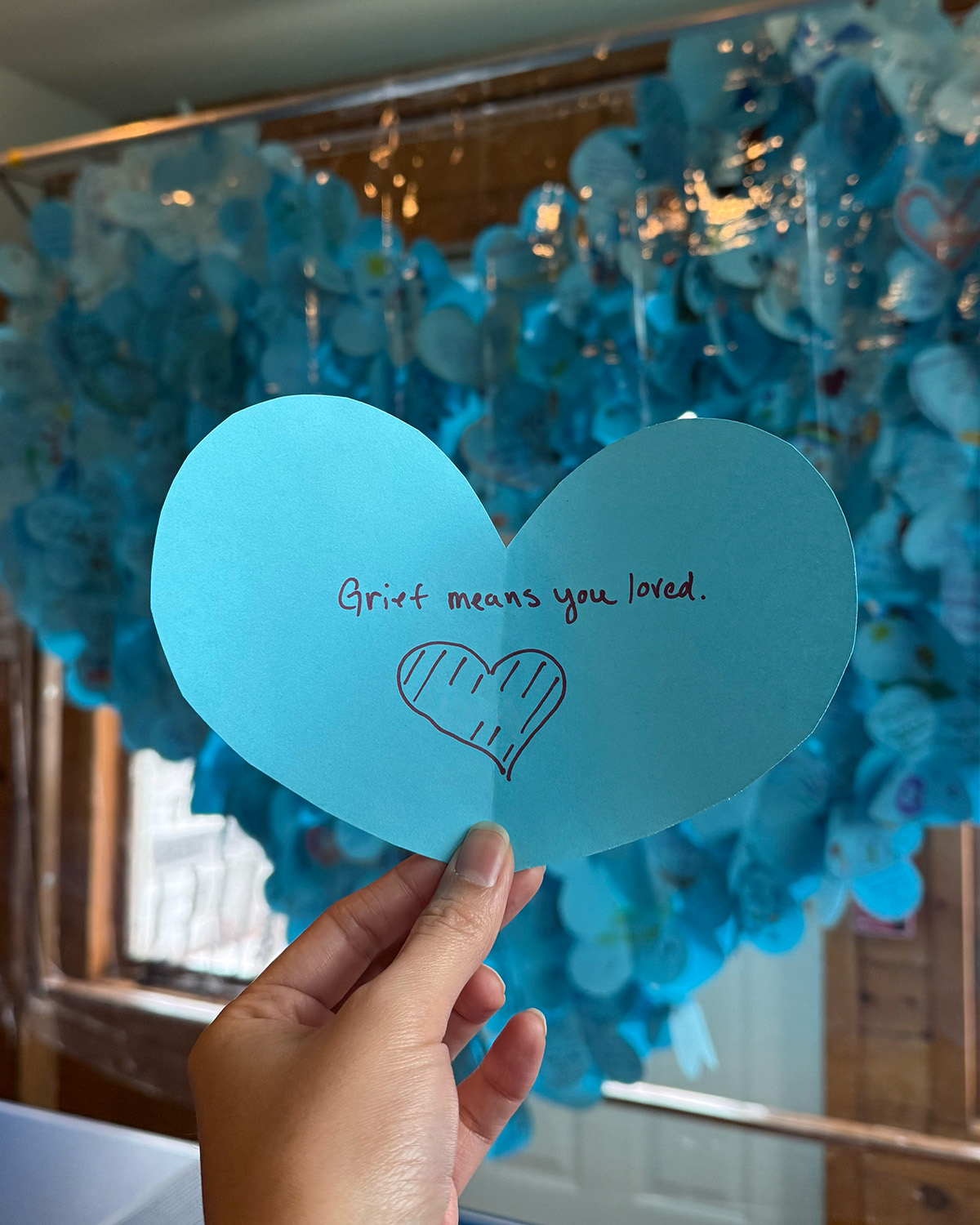 Grief doesn’t exist in isolation. It’s deeply personal, but it also reaches beyond the individual, reshaping the way we interact with the people around us. It can bring relationships closer, or it can create distance. It can heighten tensions, test communication, or deepen understanding.
Grief doesn’t exist in isolation. It’s deeply personal, but it also reaches beyond the individual, reshaping the way we interact with the people around us. It can bring relationships closer, or it can create distance. It can heighten tensions, test communication, or deepen understanding.
At The Children’s Room, we see how grief shifts the landscape of family connections, friendships, and relationships. Parents and caregivers often struggle to support their children’s grief while navigating their own. Siblings may feel unseen, their grief overshadowed. Teens can feel disconnected from their peers, suddenly carrying an experience that sets them apart.
Grief changes relationships, but it doesn’t have to break them. With intentionality, communication, and support, relationships can remain strong, even in the face of loss.
How Grief Affects Relationships
Family Dynamics Shift
A death in the family can change the way a family functions. Roles shift, expectations change and the absence of someone can leave a space that feels impossible to fill. Some families grow closer, leaning on each other for support, while others struggle to find a new rhythm.
“Grief doesn’t come with a set of instructions, so children, teens, and adults have to figure out how to navigate their grief both individually and collectively – as a family,” says Jen Noonan, TCR’s Program Director for Center-Based Services.
Parents who are grieving while also supporting their children may find it difficult to balance both realities. Children and teens, in turn, may feel like their grief is either invisible or overwhelming. One of the most important things families can do is recognize that grief looks different for everyone.
One way to strengthen connection is by creating space for open, low-pressure conversations. This might look like:
- Regular check-ins where family members can share how they’re doing, in their own time.
- Alternative forms of expression—art, movement, or storytelling—for children and teens who may not want to put their emotions into words.
- Acknowledging differences in coping styles, making room for both silence and shared reflection.
A family doesn’t return to “normal” after a loss, but it can find a new way forward—together.
Friendships May Feel Different
Friendships provide an essential source of support, but after a death, they can also feel different—sometimes distant, sometimes complicated. Some friends step up, others pull away, unsure of what to say. For grieving individuals, particularly teens, friendships that once felt effortless may suddenly require navigating unspoken expectations, misunderstandings, or changes in identity.
“Many teens say that grief makes them feel different from their peers,” says Christine Lambright, TCR’s Program Director for School and Community-Based Services. “They want to stay connected to their friends, but they also need people who truly understand what they’re going through.”
It’s okay and even helpful to express your needs directly to others:
- “I don’t need advice, I just need someone to listen.”
- “I’d love to talk about something other than grief today.”
- “It helps when you just check in, even if I don’t always respond.”
For those supporting a grieving friend, simple, consistent presence matters. Research shows that peer validation and support help counter feelings of isolation and reinforce a sense of belonging (Kaplow et al., 2020).
Romantic Relationships Face New Challenges
For couples, grief introduces new dynamics that can be difficult to navigate. One person may withdraw emotionally, while the other seeks more closeness. Communication may break down under the weight of grief, leading to frustration or disconnection. In some cases, grief-related stress can strain even long-established relationships.
Acknowledging that grief affects each person differently is essential. Research highlights the importance of balancing space and support—allowing for individual processing while also maintaining shared connection (Stroebe & Schut, 2021). Small, intentional actions can make a difference:
- Establishing small rituals—sharing a meal, taking a walk, or setting aside time to check in.
- Recognizing emotional ups and downs and not taking them personally.
- Seeking professional grief support if grief is creating distance that feels hard to bridge.
A relationship may not look the same after loss, but it can still hold love, support, and resilience.
Maintaining and Strengthening Relationships While Grieving
While grief inevitably brings change, relationships can remain strong—and even deepen—through intentional communication and mutual understanding.
- Foster open conversations. Create space for dialogue, but without expectation. Allow room for both words and silence.
- Recognize different coping styles. Not everyone grieves the same way, and that’s okay. Understanding these differences provides space for a range of grief responses as well as a variety of ways to cope.
- Set boundaries. Grieving people sometimes need space. Expressing what feels manageable—in social situations, conversations, or responsibilities—can help prevent emotional exhaustion.
- Seek out support networks. Whether through peer support groups, therapy, or trusted friends, staying connected can be a powerful counterbalance to isolation.
Grief changes relationships – it can even strengthen them. By recognizing how loss reshapes connections and actively working toward understanding, patience, and communication, individuals and families can navigate these shifts with care.
At The Children’s Room, we believe that no one should grieve alone. Our programs provide spaces for children, teens, and caregivers to express their grief while fostering meaningful connections.
—
References
- Kaplow, J. B., Howell, K. H., & Layne, C. M. (2020). Children’s grief: A mixed-methods approach to understanding its impact. Journal of Traumatic Stress, 33(1), 10-21.
- Neimeyer, R. A. (2019). Meaning reconstruction in grief: From principles to practice. Death Studies, 43(1), 1-8.
- Stroebe, M., & Schut, H. (2021). Bereavement and health: The psychological and physical consequences of loss. The Lancet Psychiatry, 8(5), 444-460.



